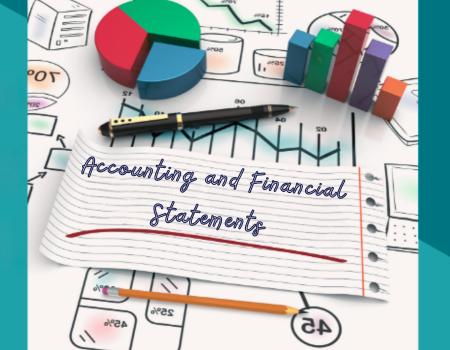Accounting For Non-Accountants: Debit, Credits, and Financial Statements
Speaker: Richard Cascarino MBA, CIA, CRMA, CFE, CISM
Speaker Designation: CEO, Richard Cascarino & Associates

Speaker: Richard Cascarino MBA, CIA, CRMA, CFE, CISM
Speaker Designation: CEO, Richard Cascarino & Associates

In today’s world, corporate decision-making relies heavily on a good understanding of financial records. This means that even non-accounting professionals need to read and understand a set of financial statements to make appropriate operational decisions.
Understanding accounting basics has become essential for professionals across various fields, not just for accountants. Accounting serves as the financial backbone of any organization, providing insights into its health, stability, and performance. For many, however, accounting concepts like debits, credits, and financial statements can seem complex and inaccessible. This knowledge gap often leads to uncertainty in interpreting financial information and making informed decisions.
By gaining insights into how debits and credits are used to organize financial data, attendees can enhance their ability to interpret financial documents accurately, contributing to better strategic planning and financial transparency within their roles.
This webinar will equip attendees with an understanding of financial ledger components within the organization’s accounting and reporting structure. It will provide essential knowledge for navigating financial statements with confidence, making it a valuable investment in your professional skill set.
The main Concepts of Financial Accounting
Accounting, often called the language of business, provides essential insights into an organization’s financial health. Terms like “debits,” “credits,” and “financial statements” may seem daunting to non-accountants, yet they form the foundation of accurate financial reporting for decision-making. Debits and credits are key to the double-entry system, impacting financial statements like the Balance Sheet, Income Statement, and Cash Flow Statement, which together reveal an organization’s assets, liabilities, income, and expenses.

Richard Cascarino has, for the last thirty-three years, been providing Internal Audit, Fraud Audit, IS Audit Consultancy, Risk Management, and Corporate Governance consultancy as well as Professional Development services to clients throughout the United States of America, the African region, Europe and the Middle East. These include Central Banks and Financial Institutions, some of the largest corporations, government departments, auditors general, and professional bodies in their respective countries.
Richard is a Past President of the Institute of Internal Auditors in South Africa, was the founding Regional Director of the Southern African Region of the IIA-Inc, and is a member of ISACA, and the Association of Certified Fraud Examiners, where he was a member of the Board of Regents for Higher Education.
He is also a visiting Lecturer at the University of the Witwatersrand, and the lead author of the book Internal Auditing - an Integrated Approach, published by Juta Publishing. In addition, he is the author of The Auditor's Guide to IT Auditing and Corporate Fraud and Internal Control: A Framework for Prevention" published by Wiley Publishing. He is also a contributor to QFINANCE – The Ultimate Resource published by Bloomsbury.